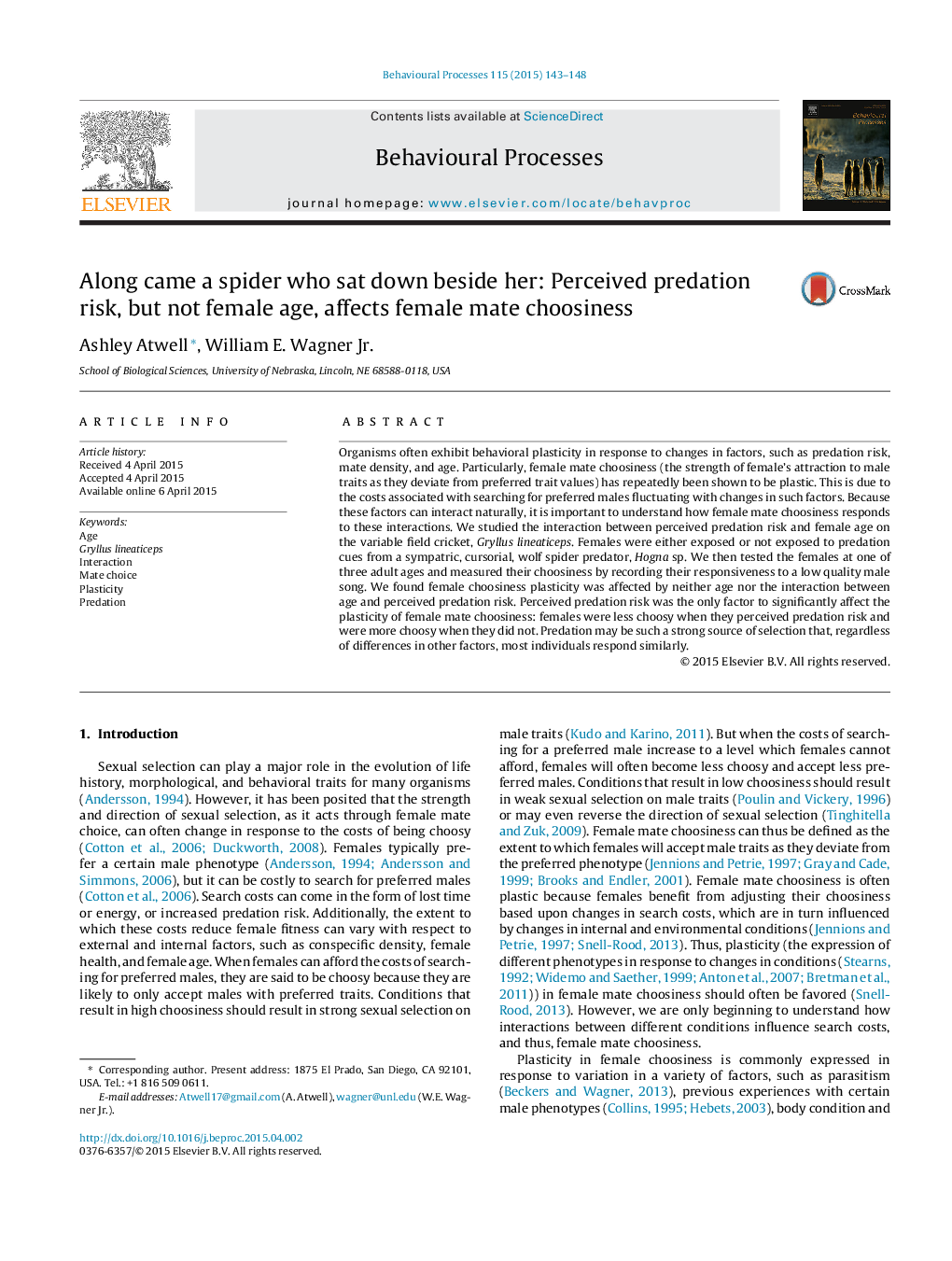| کد مقاله | کد نشریه | سال انتشار | مقاله انگلیسی | نسخه تمام متن |
|---|---|---|---|---|
| 2426603 | 1553165 | 2015 | 6 صفحه PDF | دانلود رایگان |
• We tested the effect of a female age × predation risk interaction on female mate choosiness.
• We measured female choosiness as time spent near a low-quality male call.
• Neither age, nor the age × predation interaction affected female choosiness.
• Females who perceived predation risk were significantly less choosy, regardless of age.
• Sexual selection was stronger when females did not perceive predation risk.
Organisms often exhibit behavioral plasticity in response to changes in factors, such as predation risk, mate density, and age. Particularly, female mate choosiness (the strength of female’s attraction to male traits as they deviate from preferred trait values) has repeatedly been shown to be plastic. This is due to the costs associated with searching for preferred males fluctuating with changes in such factors. Because these factors can interact naturally, it is important to understand how female mate choosiness responds to these interactions. We studied the interaction between perceived predation risk and female age on the variable field cricket, Gryllus lineaticeps. Females were either exposed or not exposed to predation cues from a sympatric, cursorial, wolf spider predator, Hogna sp. We then tested the females at one of three adult ages and measured their choosiness by recording their responsiveness to a low quality male song. We found female choosiness plasticity was affected by neither age nor the interaction between age and perceived predation risk. Perceived predation risk was the only factor to significantly affect the plasticity of female mate choosiness: females were less choosy when they perceived predation risk and were more choosy when they did not. Predation may be such a strong source of selection that, regardless of differences in other factors, most individuals respond similarly.
Journal: Behavioural Processes - Volume 115, June 2015, Pages 143–148
